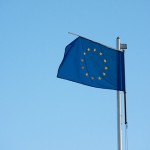EU Countries Could Pay Back Their Debts With Renewables
 What if the European Union solved the triple crisis – economy, energy, environment – by solving the financial one? Alice Stollmeyer sent me last week a link of project to do just that.
What if the European Union solved the triple crisis – economy, energy, environment – by solving the financial one? Alice Stollmeyer sent me last week a link of project to do just that.Some European nations – Greece, Spain, Ireland, Portugal – are owing more and more money to the European Central Bank and other debtors. What if these countries paid their debts back with renewable energy?
We have seen an attempt at that in Greece, albeit this didn’t get any attention from the media. Indeed, the country is willing to install ten gigawatts of solar PV capacity by 2050.
The idea is quite simple: debt ridden countries lend one or two percent of their territories for renewable energy – solar, wind and geothermal concessions. A reduction by up to thirty percent of the debts of these countries would be possible this way.
Here is how it could work:
Through a specially founded consortium for this purpose, creditors should be able to exert their concession rights by financing their renewable energy projects at a low interest rate with the European Investment Bank (EIB).
This fits very well within the EIB mission and supports the EU policy to establish an energy transition over the next decades. A low interest rate has a strong positive effect on the profitability of these projects because renewable energy installations typically have a relative high initial capital investment and a very low operational cost since the “fuels” – solar, wind and geothermal – are free.
Everybody would win with such a plan: Creditors would get their money back, debtors would pay back what they owe and would create sustainable green jobs, the EU could lead again on the front against climate change.
The European Union had been leading for years before getting less and less ambitious in the past few years.
However it has noticeably cringed to 20 percent emissions reductions even when environment ministers called for deeper cuts and when an independent study shown that these would actually save country members money.
You can return to the main Market News page, or press the Back button on your browser.

